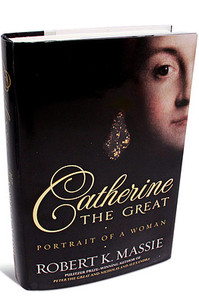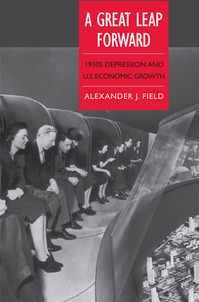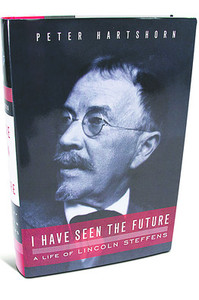Source of book image: http://online.wsj.com/article/SB10001424052970204644504576653083743832432.html?KEYWORDS=Catherine+Great
(p. C3) Bereft of husband and child, a lonely Catherine began to read the histories, philosophy and literature of Greece and Rome and of the Enlightenment. Montesquieu’s “The Spirit of Laws,” which analyzed the strengths and weaknesses of despotic rule, had a powerful impact on her. She was particularly interested in his thesis that the conduct of a specific despot could partially redeem that form of rule. Thereafter, she attributed to herself a “republican soul” of the kind advocated by Montesquieu.
Voltaire, the venerated patriarch of the Enlightenment, had concluded that a despotic government might well be the best possible form of government–if it were reasonable. But to be reasonable, he said, it must be enlightened; if enlightened, it could be both efficient and benevolent. Soon after ascending to the throne, Catherine began a correspondence with Voltaire that eventually extended to hundreds of letters over more than 20 years.
. . .
Near the end of her reign Catherine was asked how she understood the “blind obedience with which her orders were obeyed.” Catherine smiled and answered, “It is not as easy as you think…. I examine the circumstances, I take advice, I consult the enlightened part of the people, and so in this way I find out what sort of effect my laws will have. And when I am already convinced in advance of good approval, then I issue my orders and have the pleasure of observing what you call blind obedience.”
Catherine died in 1796, when George Washington was finishing his second term in office. Since then, the temptations of absolute power have remained great; despots have continued to appear, afflicting people everywhere. We have learned, at enormous cost, the difficulty of combining despotism with benevolence. Few rulers have even tried. Catherine tried.
For the full commentary, see:
ROBERT K. MASSIE. “Catherine the Great’s Lessons for Despots; Russia’s erudite empress tried to redeem absolute rule; her failures highlight dangers still present today.” The Wall Street Journal (Sat., November 12, 2011): C3.
(Note: ellipsis added.)
For Massie’s full biography of Catherine the Great, see:
Massie, Robert K. Catherine the Great: Portrait of a Woman. New York: Random House, 2011.












